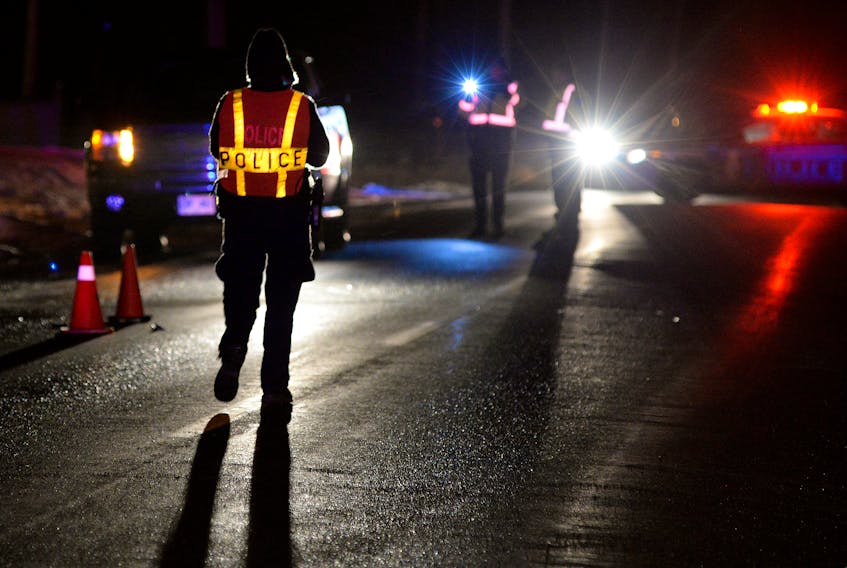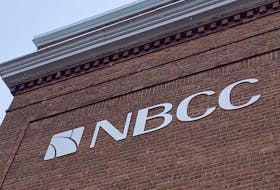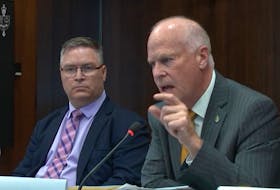ST. JOHN'S, N.L. — As the provincial government rolls up its sleeves to decide on what changes it will make to the province’s auto insurance industry, the gloves are coming off in the fight between two groups with opposing views on what those measures should be.
The Insurance Bureau of Canada (IBC), the association that represents insurers, and a group of personal injury lawyers in the province that has formed the Insult To Injury Campaign, have ramped up the vitriol towards each other as a decision nears.
The provincial government is expected to soon announce changes as a result of the Public Utilities Board’s (PUB) review of automobile insurance in the province.
The review, which began in 2017, looked into the reasons behind increasing claims costs and options to reduce the costs. The PUB was also asked to review the impact on insurance rates and implications for claimants of introducing a monetary cap for minor injuries or continuing with the current deductible of $2,500 or increasing the deductible.
The PUB presented its report to the provincial government on Jan. 29.
The IBC has stated that the imposition of a $5,000 minor injury cap, plus other reforms to allow for faster access to health care, is the best option to stabilize insurance premiums and one day see a reduction in rates.
The Insult To Injury Campaign, however, has stated that if a minor injury cap is imposed, accident victims will lose the right to sue for fair compensation and premiums will not go down and likely continue to rise.
The most recent barrages between the two groups were fired after a CBC News report stated that insurance premiums in New Brunswick have been dramatically increasing the last couple of years despite a minor injury cap in place in that province.

The Insult To Injury Campaign lawyers accuse the IBC of intentionally not bringing that information forward during the PUB hearings.
Last week the lawyers sent a letter to the PUB expressing concern over the CBC report.
“In its filings with the board for the hearing and throughout the entire hearing, submissions and reporting process, the IBC continued to provide and rely on 2016 and earlier data from other Atlantic provinces in support of its argument that a cap on so-called minor injuries in New Brunswick and Nova Scotia was a shining example of a mechanism for controlling claims costs and providing rate stability,” the letter states. “All the while, the IBC was well aware that rates in New Brunswick had begun to escalate to a significant degree after 2016 and did nothing to bring this to the attention of the board.”
The lawyers suggest the PUB denounce in writing “in the strongest possible terms” the conduct of the IBC uncovered in the news report.
Amanda Dean, IBC’s vice-president Atlantic, however, said that during the hearings the IBC had to rely on the latest numbers available through the General Insurance Statistical Agency.
She noted that New Brunswick is still a good example of how a cap will help stabilize rates. She said the insurance companies in New Brunswick currently seeking rate increases, if approved, will still see premiums below that province’s 2017 average rate.
“New Brunswick has had a cap for 16 years. It’s been tremendous stability for consumers over that 16-year period and now we are seeing — whatever is happening within the market — there’s a few more claims happening, rates need to go up accordingly. So, the fact that insurers are filing for rate increases, justifying the rate increases and it’s going up, that is the sign of a healthy market. Things improve, rates go back down in a healthy market.”
Drivers in Newfoundland and Labrador, she noted, are still paying on average more than $300 in premiums than people in New Brunswick.
The IBC also maintains that insurance companies operating in Newfoundland and Labrador do not make a profit.
The lawyers, however, pointed out during the hearings that a report by the Superintendent of Insurance for Newfoundland and Labrador found that insurance companies in the province collected about $92 million more in auto insurance premiums in 2017 than was paid out in claims.
That, said the Insult To Injury Campaign, makes for an excessive profit.
The lawyers say that by arguing for a cap, the insurance companies want to make more profit instead of finding a way to lower premiums for its customers.
Dean countered that personal injury lawyers in the province collect millions each year in contingency fees.
“They are pushing hard for the status quo because, quite frankly, it suits their purposes,” she said. “Every year personal injury lawyers are earning anywhere between $23 million and $33 million in contingency fees from motor vehicle collision victims — that’s an awful lot of money.”
Meantime, the province’s consumer advocate, Dennis Browne, has stated he prefers the option of increasing the current deductible of $2,500 to $10,000, rather than the imposition of a cap.
RELATED









